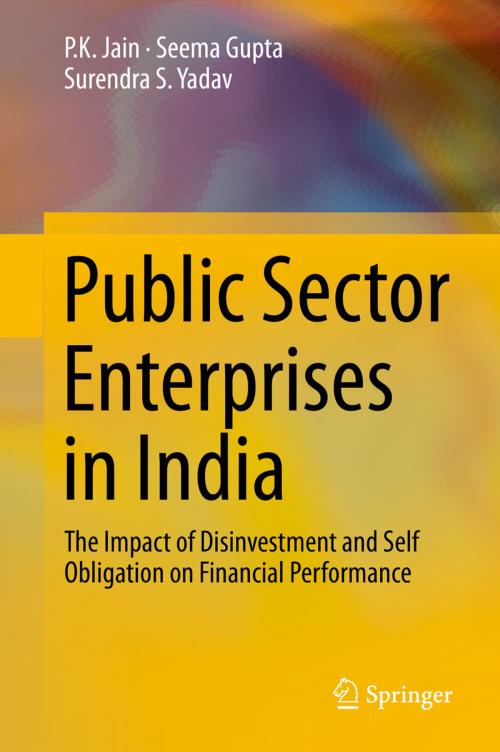Public Sector Enterprises in India
The Impact of Disinvestment and Self Obligation on Financial Performance
Nonfiction, Reference & Language, Law, Administrative Law & Regulatory Practice, Social & Cultural Studies, Political Science, Politics, Economic Policy| Author: | P.K. Jain, Seema Gupta, Surendra S. Yadav | ISBN: | 9788132217626 |
| Publisher: | Springer India | Publication: | June 5, 2014 |
| Imprint: | Springer | Language: | English |
| Author: | P.K. Jain, Seema Gupta, Surendra S. Yadav |
| ISBN: | 9788132217626 |
| Publisher: | Springer India |
| Publication: | June 5, 2014 |
| Imprint: | Springer |
| Language: | English |
The book examines the various aspects of non-financial central public sector enterprises (PSEs) in India, for a period from 1986-87 to 2010-11. The analysis is based on all the key financial ratios; namely, profitability, efficiency, liquidity, leverage and productivity.
Liberalization and globalization have caused competition in India and have lowered the profit margins. At the same time, Indian government has reduced subsidies and budgetary support for PSEs to curtail their own fiscal deficit. Strategic and economic reforms were also introduced in PSEs to make their operations commercially profitable so that they are not dependent on the government to meet their financial requirements on the one hand, and have their own earnings to finance their expansion/modernization requirements as well as their social obligations, on the other. To what extent, the PSEs have succeeded in this objective constitutes one major aspect of the present research work. The other equally important aspect examined is financial performance of the PSEs which have opted for disinvestment and have signed memorandum of understanding (MoU)/ self obligations. The Indian Government has desired the central PSEs to be profitable in their operations in post-liberation era of 1990s. For this purpose, two major instruments, namely, disinvestment and MoUs, were introduced. This book examines, in detail, financial performance of PSEs which had opted for disinvestment and have signed MoU. Based on analysis/ findings and literature on the subject, the book contains some concrete suggestions that would prove extremely helpful to Indian Government to further improve their financial performance.
The book examines the various aspects of non-financial central public sector enterprises (PSEs) in India, for a period from 1986-87 to 2010-11. The analysis is based on all the key financial ratios; namely, profitability, efficiency, liquidity, leverage and productivity.
Liberalization and globalization have caused competition in India and have lowered the profit margins. At the same time, Indian government has reduced subsidies and budgetary support for PSEs to curtail their own fiscal deficit. Strategic and economic reforms were also introduced in PSEs to make their operations commercially profitable so that they are not dependent on the government to meet their financial requirements on the one hand, and have their own earnings to finance their expansion/modernization requirements as well as their social obligations, on the other. To what extent, the PSEs have succeeded in this objective constitutes one major aspect of the present research work. The other equally important aspect examined is financial performance of the PSEs which have opted for disinvestment and have signed memorandum of understanding (MoU)/ self obligations. The Indian Government has desired the central PSEs to be profitable in their operations in post-liberation era of 1990s. For this purpose, two major instruments, namely, disinvestment and MoUs, were introduced. This book examines, in detail, financial performance of PSEs which had opted for disinvestment and have signed MoU. Based on analysis/ findings and literature on the subject, the book contains some concrete suggestions that would prove extremely helpful to Indian Government to further improve their financial performance.















